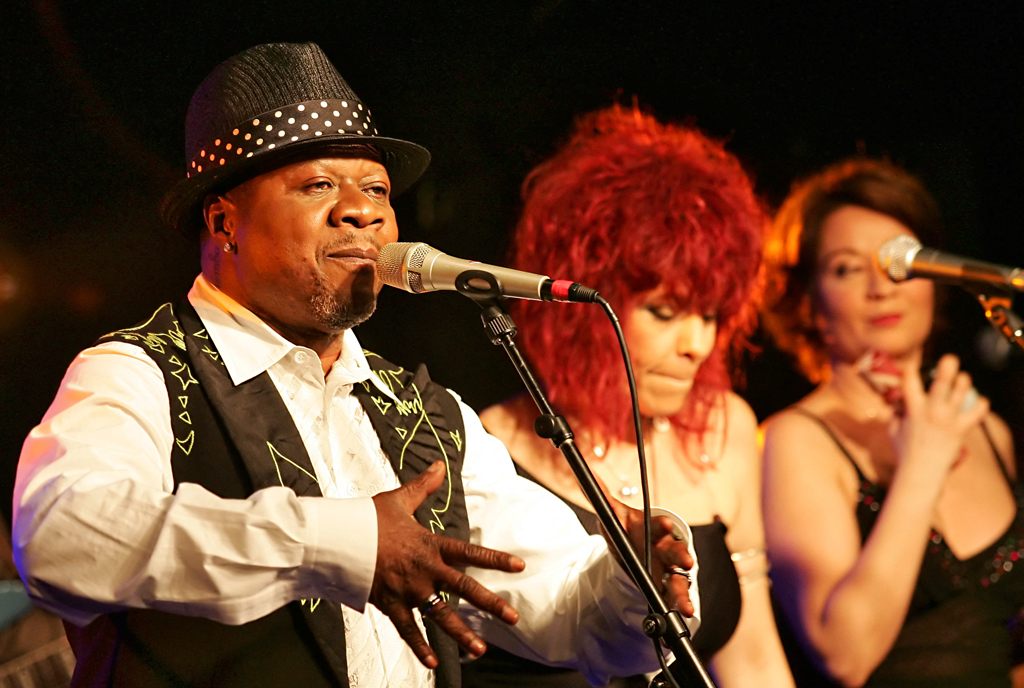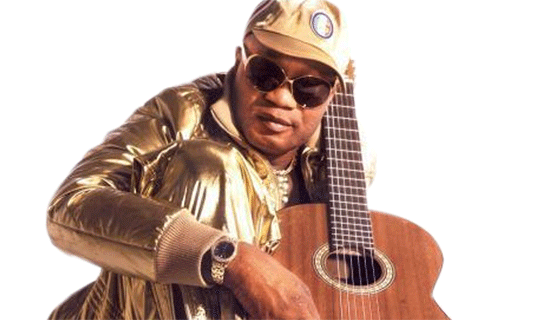
In this file photo taken on February 15, 2006 Congolese singer Papa Wemba performs during a concert at the New Morning. PHOTO / AFP)
The band strikes up the rumba, and the dance floor in Kinshasa fills with couples who sway to its slinky, sensual rhythm.
Rumba is a music that has an international following, especially for its brassy Cuban version.
But in Congo, the guitar-driven local variant has a deep and passionate following, and devotees hope that next week the genre will be declared a world cultural treasure.
The Democratic Republic of Congo and its smaller neighbour, the Republic of Congo, are jointly pushing for the UN Educational, Scientific and Cultural Organisation (UNESCO) to inscribe their rumba on its list of Intangible Cultural Heritage of Humanity.
If so, it will join Cuban rumba, Jamaica’s reggae music, Finland’s sauna culture, the hawker food of Singapore and other cherished human innovations.
“This is a moment we have been waiting for impatiently,” said Jean-Claude Faignond, who manages the Espace Faignond dance bar, a legendary hangout in Brazzaville, the capital of the Republic of Congo.
“Is rumba an intangible heritage?” he asked, before replying: “It’s pure happiness — immortality.”
“Rumba is a passion shared by all Congolese… It reaches into all areas of national life,” said Professor Andre Yoka Lye, director of the National Institute of Arts in DR Congo’s capital Kinshasa and president of a “joint commission for the promotion of Congolese rumba”.
Rumba is “a unifier, bringing people together, as well as the past and present.”
Out of Africa… and back
The story of the rumba is rooted in the days of the slave trade.
Africans who were captured and transported to the Americas had no possessions when they arrived, but brought with them their culture and their music.
Once there they crafted the musical instruments they had played back home — “percussion instruments, membranophones, idiophones and also the African piano, the xylophone,” explained Gabriel Kele, head of musicology at DR Congo’s National Museum.
As time went by, “the instruments evolved,” said Kele.
As did the style of music, which shifted towards jazz in North America and rumba in South America.
Eventually the music came home.
It returned to Africa, often disseminated by traders or travellers who brought 78 rpm records with them, and was adopted and adapted by local musicians.
Congolese rumba in its modern form dates back around a century, but started to hit its stride in the 1940s, spreading like wildfire in Kinshasa and in Brazzaville, its sister across the Congo River.
It’s a music of cities and bars, of meetings and nostalgia, of “resistance and resilience,” of “sharing pleasure” — a music with its own way of life and dress codes, Professor Yoka said.
In the musicologist’s office, a well-used and weather-beaten instrument sits on a shelf.
“This is Wendo’s first guitar,” Yoka explained reverently.
The instrument was played by Wendo Kolosoy (1925-2008), whom devotees refer to as the “father” of Congolese rumba. His 1948 song “Marie-Louise”, with its spangly guitar hook, is a classic of the genre.
Love and politics
Sung mainly in Lingala, rumba songs typically are about love — but political messages have also been a feature.
For many Congolese, the music became intertwined with decolonisation from France and Belgium.
The 1960 hit “Independence Cha Cha” performed by Joseph Kabasele and his African Jazz Orchestra spread beyond the two Congos, becoming an unofficial anthem of African independence.
There have also been less glorious periods of the Congolese rumba, when the music was exploited as propaganda by those in power.
“There have sometimes been deviations,” Yoka acknowledged.
Congolese music is rooted in oral traditions and person-to-person contact, which explains why it is so lively and quick to evolve.
But because the culture is not codified, it tends to gets little international recognition, which explains the push for UNESCO acknowledgement, say those promoting the bid.
Rumba’s history is fluid — it’s a tale of return and renewal, said Yoka.
One of its greatest practitioners, Papa Wemba, “The King of Rumba Rock,” died in 2016, but the genre remains strong.
“Koffi Olomide is rumba, Fally Ipupa is rumba…. Even those who are more restless, such as Werrason and JB Mpiana, are nostalgic about returning to their roots,” said Yoka, rattling off the names of modern rumba maestros.
On the floor of her restaurant Quick Poulet in Kinshasa, 65-year-old Maman Beki, wearing a long yellow dress with gold embroidery, is dancing away.
Her steps are sure, her movements natural and effortless.
Kinshasa’s famous nightlife is restricted these days by the anti-Covid curfew, which starts at 11pm. But every Friday and Saturday, a band livens up the evening at Quick Poulet.
Beki says she got her passion for the music from her father, who won rumba-dancing competitions in his prime.
“I love to dance,” she says in between songs, “It’s in the blood.”
Don’t want to miss out on any story? For updates on all Sqoop stories, follow this link on Telegram: https://t.me/Sqoop





























































